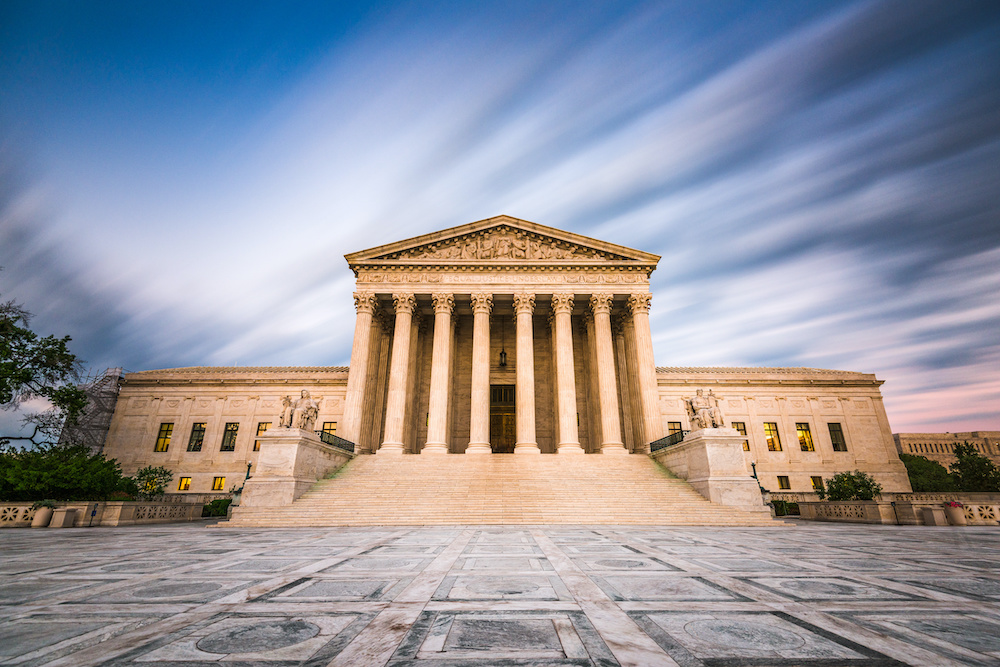
- Details
- By Native News Online Staff
The Native American Rights Fund’s Tribal Supreme Court Project—an initiative co-founded in 2001 with the National Congress of American Indians to monitor and defend court cases that stand to impact tribal sovereignty— just received a $600,000 boost.
On Feb. 13, the San Manuel Band of Mission Indians announced a two-year grant of $300,000 per year to NARF, specifically to support the Tribal Supreme Court Project.
The Tribal Supreme Court Project offers information, coordination, and legal aid to tribal leaders and attorneys preparing for cases before the United States Supreme Court. More than 200 attorneys and academics specializing in Indian law are on a working group for the project, according to its website.
The working group has monitored and filed briefs for several high profile cases in just the last year, including Haaland v. Brackeen, a case that tribal leaders across Indian Country view as the most significant threat to tribal sovereignty in modern times. The highly contested case out of Texas challenges the constitutionality of the Indian Child Welfare Act (ICWA).
Additionally, the Tribal Supreme Court Project worked on: Department of the Interior v. Navajo Nation, a case where The Navajo Nation sued the federal government alleging violations of the National Environmental Policy Act and breach of trust regarding management of the Colorado River.(water rights); and Oklahoma v. Sims, a case dealing with state criminal jurisdiction over non-Indians in Indian country.
NARF’s Executive Director John Echohawk said in a statement that San Manuel Band of Mission Indians’s ongoing support of the Tribal Supreme Court Project stands to benefit all Natives.
“Protecting tribal sovereignty is an all-hands-on-deck effort to ensure that Native American people can continue to live according to our cultures and traditions as we have for generations,” he said.
The San Manuel Band’s Chairwoman Lynn Valbuena said the tribe—which first donated to the project in 2006— is committed to investing in the fight for sovereignty.
“As an Indigenous people, we have made great strides to protect tribal sovereignty in the legal sector, but there is still much work to be done,” Valbuena said in a statement. “The tribe is committed to supporting the critical work of the Tribal Supreme Court Project to ensure that our tribal legal rights as well as our sovereign powers and authorities will continue well into the future.”
The Tribal Supreme Court Project initially sprung out of two rulings by the Supreme Court during its 2000 term. The court’s opinions in Atkinson Trading Co. v. Shirley, a taxation case, and Nevada v. Hicks, a case involving the jurisdiction of tribal courts, struck severe blows to tribal sovereignty and tribal jurisdiction, according to NARF.
In response Tribal Leaders met in Washington, D.C. in September 2001, and established the Tribal Supreme Court Project as part of the Tribal Sovereignty Protection Initiative.
More Stories Like This
50 Years of Self-Determination: How a Landmark Act Empowered Tribal Sovereignty and Transformed Federal-Tribal RelationsSRMT Child Support Enforcement Unit Delivers Holiday Food Boxes to Families
The Shinnecock Nation Fights State of New York Over Signs and Sovereignty
Navajo Nation Council Members Attend 2025 Diné Action Plan Winter Gathering
Ute Tribe Files Federal Lawsuit Challenging Colorado Parks legislation
Help us defend tribal sovereignty.
At Native News Online, our mission is rooted in telling the stories that strengthen sovereignty and uplift Indigenous voices — not just at year’s end, but every single day.
Because of your generosity last year, we were able to keep our reporters on the ground in tribal communities, at national gatherings and in the halls of Congress — covering the issues that matter most to Indian Country: sovereignty, culture, education, health and economic opportunity.
That support sustained us through a tough year in 2025. Now, as we look to the year ahead, we need your help right now to ensure warrior journalism remains strong — reporting that defends tribal sovereignty, amplifies Native truth, and holds power accountable.
 The stakes couldn't be higher. Your support keeps Native voices heard, Native stories told and Native sovereignty defended.
The stakes couldn't be higher. Your support keeps Native voices heard, Native stories told and Native sovereignty defended.
Stand with Warrior Journalism today.
Levi Rickert (Potawatomi), Editor & Publisher


